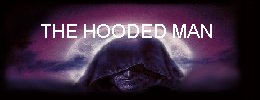Harold Godwinsson is the hero of Englisc Nationalism; as the last 'Anglo-Saxon' king he is still honoured today at Battle Abbey each year by many Englisc Nationalists. What has always seemed strange to me is the complete rejection of the Danish and Norse influence on the English Folk. This seems strange in view of the background of their hero - Harold Godwinsson.
Harold Godwinsson was the son of Godwin, Earl of Wessex, and Gytha Thorkelsdottir (Gytha - Daughter of Thorkel) who was the sister-in-law of King Cnut of England and Denmark, descended from the 'Vikings'. Gytha's brother was Ulf the Earl who married Cnut's sister, Estrith. Even the name 'Harold' stems from the Danish Vikings. Anglo-Saxon-Dane might be more appropriate, and thus the input of the Danes and Norsemen placed into its rightful position in English history. Harold Godwinsson was 'Anglo-Dane'.
With the death of Harold Godwinsson the power of Wessex decreased somewhat, and the pockets of resistance against the Norman outlanders arose mainly in the Danelagh where they held out for seven years against the Norman oppression. The heroes of the time were Robin Hood, Adam Bell, Clym of the Clough, William of Cloudeslee, Edric the Wild and the famous Hereward the Wake who held out in the Fens of East Anglia.
Hereward the Wake was Lord of Bourne and of the ancient family of the Wake; his symbol was the 'Wake Knot' which is in the form of a 'W'. His lineage is not clear from history, since anything English was heavily suppressed by William the Bastard. The most famous (fictional) book written on Hereward the Wake is that done by Charles Kingsley, and he traces Hereward's lineage to that of Leofric of Bourne (Leofric of Mercia) and the famous Lady Godiva. Hereward also seems to have had some Danish ancestry. Most of the names of the followers of Hereward the Wake are distinctly English, Anglo-Saxon names in areas ruled by the Danes, proving how far integration between Anglo-Saxon and Dane had gone by this time. Scholars have also suggested that he was of Anglo-Danish descent.
Hereward's following was made up of unruly brawlers - Geri, Winter, the Wulfrics, the Wulfards, the Azers and other wild fighters. Hereward is described as being short but strong-chested, having one grey and one blue eye, and long locks of golden hair that marked him out as being 'of ancient royal race'. His wrists and throat were tattooed in blue patterns, which, like the statement made by William of Malmesbury, shows the English to have tattooed themselves. He wore a gold ring around his neck (torc, worn by Germanic Tribes in this area) and gold rings on his wrists. At least this is the way he is described by Charles Kingsley.
I am not going to go into the history of Hereward the Wake since it should be pretty well known, and would take up too much space in a short post. Kingsley has him slaying a bear, which takes us straightway into Archetypal Myth. History now becomes myth and legend -
"And they talked and sung of The Wake, and all his doughty deeds, over the hearth in lone farmhouses, or in the outlaw's lodge beneath the hollins green; and all the burden of their song was ' Ah that The Wake were alive again!' for they knew not that The Wake was alive for evermore; that only his husk and shell lay mouldering there in Crowland choir; that above them, and around them, and in them, destined to raise them out of bitter bondage, and mould them into a great nation, and the parents of still greater nations in lands as yet unknown, brooded the Immortal Spirit of The Wake, now purged from all earthly dross - even the Spirit of Freedom, which can never die."
"England A-Wake!" This was the rallying cry we have used since Woden's Folk was first formed back in 1998. This was spelled as it is to incorporate the great English Folk-Hero - Hereward the Wake - into our Wodenic Myth. The 'Immortal Spirit of The Wake' does live on, it lives on in the blood of those Englishmen and Englishwomen who today stand true against tyranny and the loss of freedom that we endure, a direct parallel to the times of Norman tyranny some thousand years ago. Kingsley calls him 'The Last of the English' which is fitting, but today we shall proclaim ourselves as the 'First of the New English' as the phoenix rises out of the ashes of destruction.

No comments:
Post a Comment